Student Opinion
Artemis Papadaki Anastasopoulou
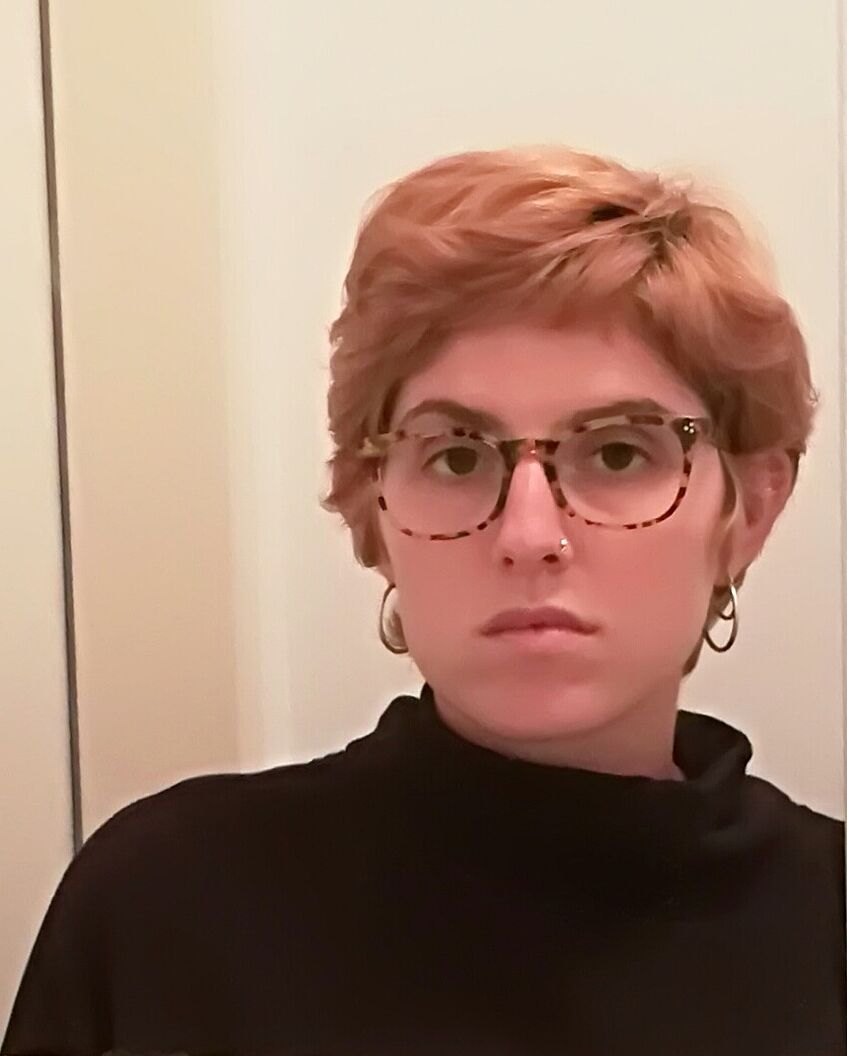
Artemis Papadaki Anastasopoulou
"I come from Greece and I've completed a BA on Molecular Biology & Genetics in my home country. Shortly after, I departed to Edinburgh University for a one year MSc in Integrative Neuroscience and subsequently I worked as a research assistant in a Neurobiology Laboratory in Vienna. Throughout my journey in the natural sciences I was constantly asking questions that exceeded the borders of the lab. I was curious to explore what is the role of the natural sciences in a societal context. When I found the STS master in Vienna I applied without second thoughts; they were asking the same questions I was interested in!
At the beginning I was not sure what to expect but after a year and a half in the master I am very happy to be here. The department is not very big which gives the opportunity for everyday interaction with the lectures and other students. I really like the feeling that I can always approach people and ask them questions or have a discussion. I am also working part time so sometimes it can be demanding therefore I really need to have a good planning of the semester. Overall, I am very happy I started the STS master, in many ways it has really changed who I am."
Florentine Frantz
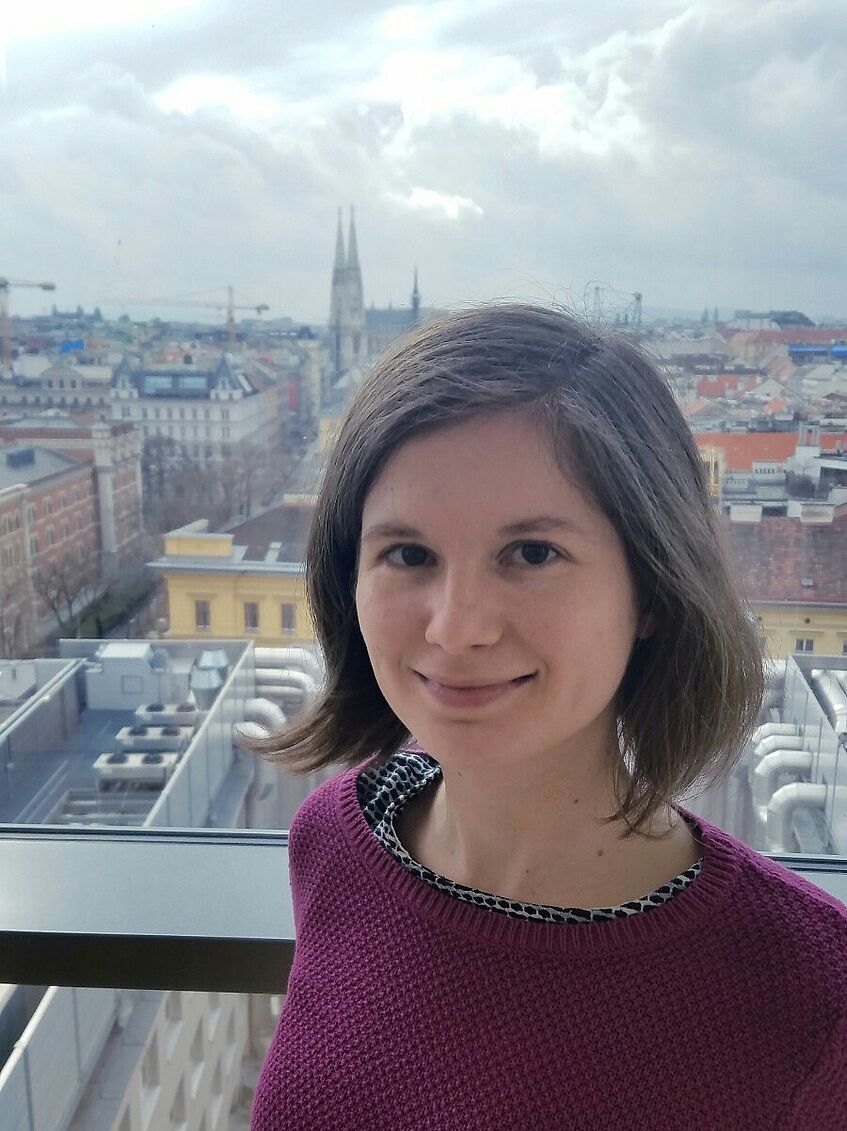
Florentine Frantz
"I am from Graz, Austria and I graduated in Technical Physics at the Technical University of Graz. After finishing my Bachelor’s thesis at the Department of Theoretical Physics, I applied for the STS Master right away. To be honest, the question for me was never IF I should do a master, but rather WHICH one interests me the most. There would have been many possible directions for me and it was not an easy choice. Most of my former colleagues stayed in physics for their Masters. But I decided to go for a more interdisciplinary direction.
I first got aware of the STS department in Vienna University, when I stumbled across an article from Ulrike Felt and Maximilian Fochler titled “What Science Stories do: Rethinking the Multiple Consequences of intensified science communication”, which I found very inspiring as I was active in Science Communication back in Graz. As I browsed the website, I was happy to find out that there is a Master at the department. Looking back now, I realize that I didn’t really know what STS was. I was interested to learn more about topics they raised in their publications/website and find answers to bigger questions about science and its relationships with society. I felt that it was the space to reflect on many issues didn’t have place in my previous studies, such as reflections on the history and context of science or systemic changes in academia and knowledge production. Above all, I hoped to find a critical, and reflexive studying environment, where multi-perceptivity was held up as an important potential.
Years later, I can now confirm that I found what I was looking for and even more. I found answers to questions, but actually the longer I study it the more questions arise. STS is more than just knowledge about science, technology & society relations, but rather method, a lens, on how to approach the world.
Moreover, the students you meet come from everywhere, geographically and regarding to discipline, which often leads to inspiring discussions. I know most of my best friends in Vienna from the course. We organize regular meetings and Christmas Parties and it is a really nice studying atmosphere.
The first semester is time and work intensive. All the courses should teach you the skills and knowledge (Key Questions of STS, Theories, Methods and Knowledge management) to propose and conduct an STS project. After the first semester, it gets more flexible and you can choose your own research specializations and the seminars. Most of the seminars are held by international guest professors, which is always exciting. The structure of the master allows a rather flexible time management and the lecturers are eager to support us as good as they can. All in all, the Master was a really valuable studying experience."
Cornelius Heimstädt
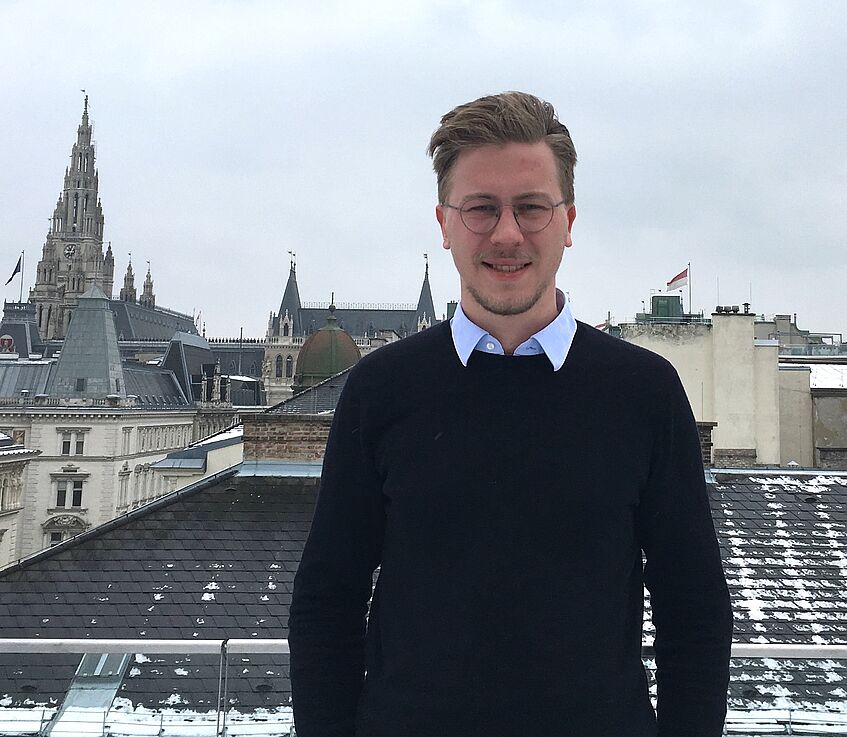
Cornelius Heimstädt
"I come from Düsseldorf, Germany. And I am a graduate in "Organic Agriculture and Marketing" from Eberswalde University in the department of Sustainable Development. For my BA thesis I inquired a research in finding out the relation of masculinities and tractors, or rather how masculinities are inscribed into tractors. Throughout the study, I was not satisfied the most scholarly discussions concerning with organic agriculture. Accordingly, I decided to expand my knowledge of the relation of human and technology in the field of food production and beyond. So, I decided to start a master’s degree right away and find out what would be the best MA for me. I gradually became interested in STS field of studies. I applied for three different universities, and got accepted at all of them. In the end, I found Vienna the best option since it offers a two-year programme, which is a good time for getting a grasp of what STS is about. It turned out to be true. I am genuinely happy for the decision that I have made and the time that I have for reading of all the literature during the programme as well as the studying experience. Studying STS somehow changed how I can look at and talk about the world. The concepts and theories we learned seem applicable to so many relevant issues and topics. This feels very empowering somehow. I am currently writing my thesis on ambivalences within valuing processes of organic food. So, the focus on agriculture remained strong and I am wishing to expand it further into higher academic levels in the near future."
- Cornelius Heimstädt
Olsi Kusta
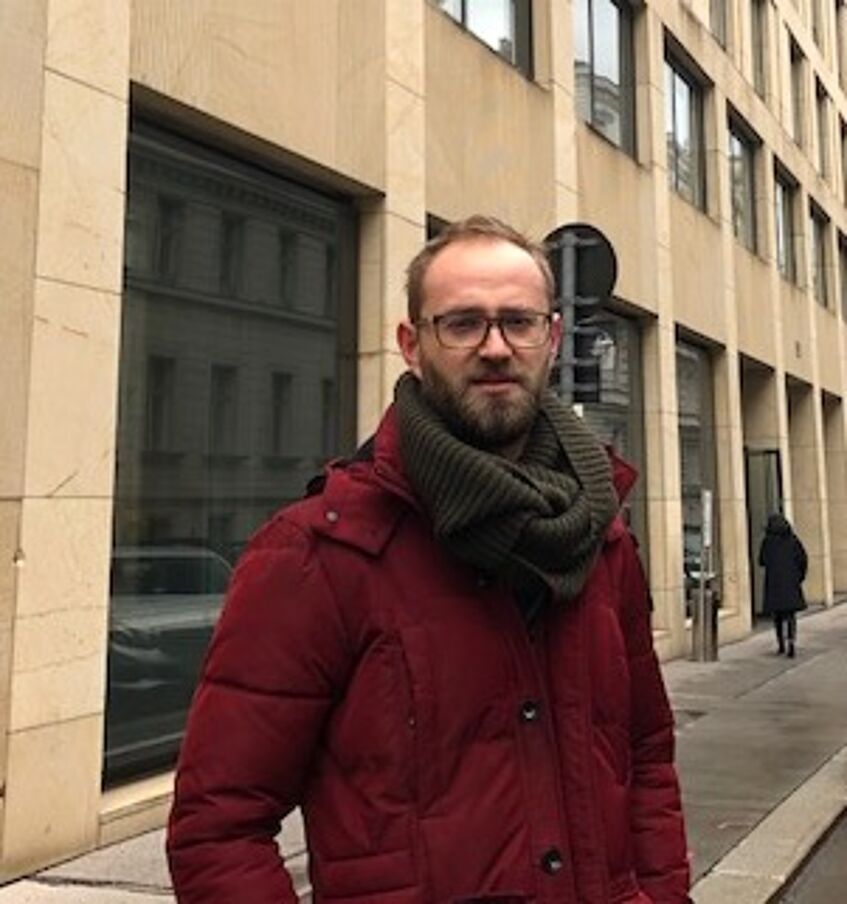
Olsi Kusta
“I am from Albania and I have graduated from University of Tirana, Faculty of Social Sciences. I have a joint major on Philosophy with a special direction in Sociology. I started the STS master programme almost 7 years after my graduation in BA level in where I worked in different fields. The main reason that I enrolled in this Master program was to pursue a career in academia, especially in qualitative oriented research in social sciences. Also, I had an urge to expand my knowledge and understanding of philosophy of science and sociology, which STS master does that best.
Another advantage of the master is the quality of the city host– Vienna. This city is such an amazing place to study and it is beautiful. Additionally, it is quite affordable specially for non-EU students like myself.
I really enjoyed the subjects and topics in the program and the ways in which the master focuses on the correlation of science-technology and social studies. During the programme, we were initially given tasks to work in groups for different classes, which I really enjoyed it. This helped me to get to know more the fellow students as well as get a taste of how STS works in practice. The case-base exercises in the first semester is the perfect example for how to qualitatively analyse the correlation of science-technology and society. Accordingly, the modules are very efficient in delineating theories and methodologies in STS programme. The master shows how to engage with theory and method in the field, as well as, how to manage and conduct a research project from scratch to the final phase.
The professors and the administrative staff of this institute are very friendly and willing to help you. I truly appreciated their way of communicating and their politeness in dealing with different issues. Students here are easy going, and it is not strange that you bond with different people, from different countries. I also enjoyed the blocked seminars very much with visiting professors, as they opened a myriad of horizons about different topics and scholarships in STS.”
Xingfei Zhong
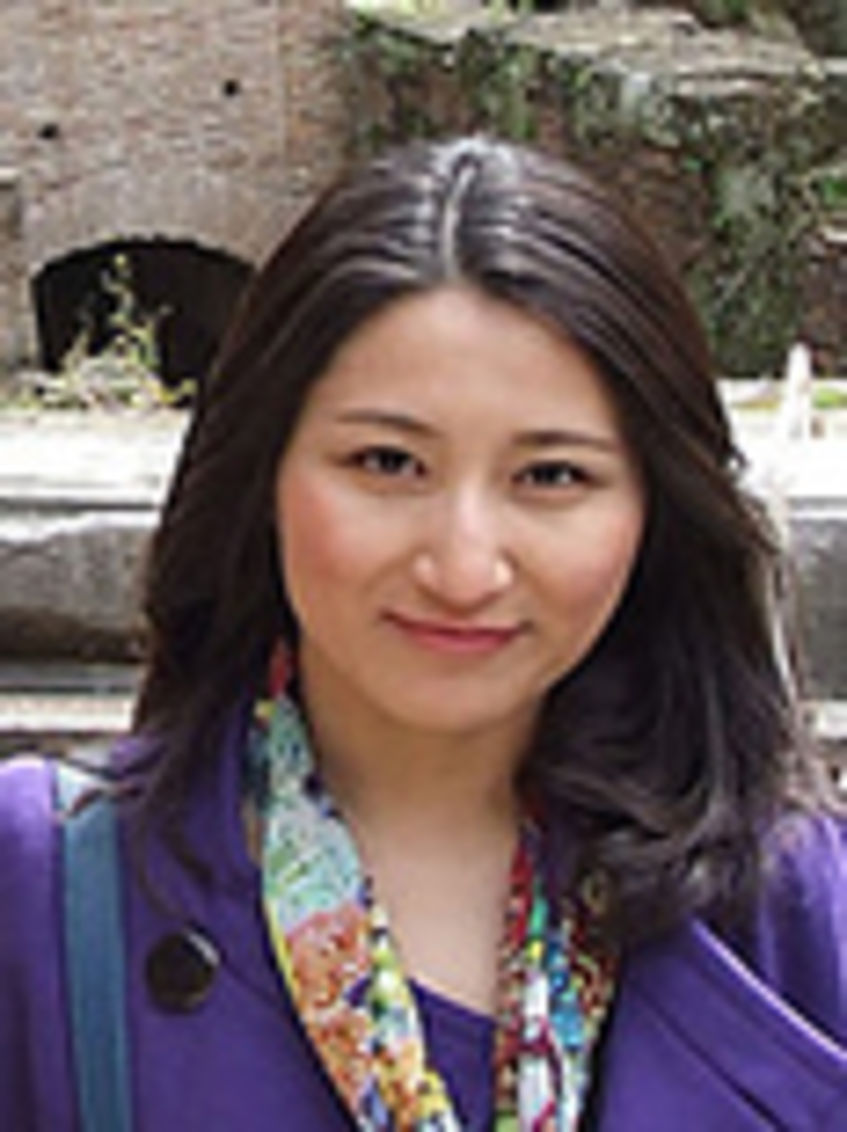
Xingfei Zhong
"The master's programme Science-Technology-Society at the University of Vienna has been an incredibly rewarding experience for me. The programme nicely integrates empirical work and theoretical reflection, thus providing me with a comprehensive insight into today’s society, whose development is intimately entangled with science and technology. Moreover, the programme’s focus to develop students’ ability to manage projects by themselves impels me to grow in many other areas such as presentation and interpersonal skills. The broad structure of the programme appeals to me very much for it covers a diverse range of subjects and knowledge that cater to today’s job market. And importantly, the truly international environment in the STS department opens up a diverse and cooperative space for each student, which makes it an additional gift to study here!"
Simon Zingerle
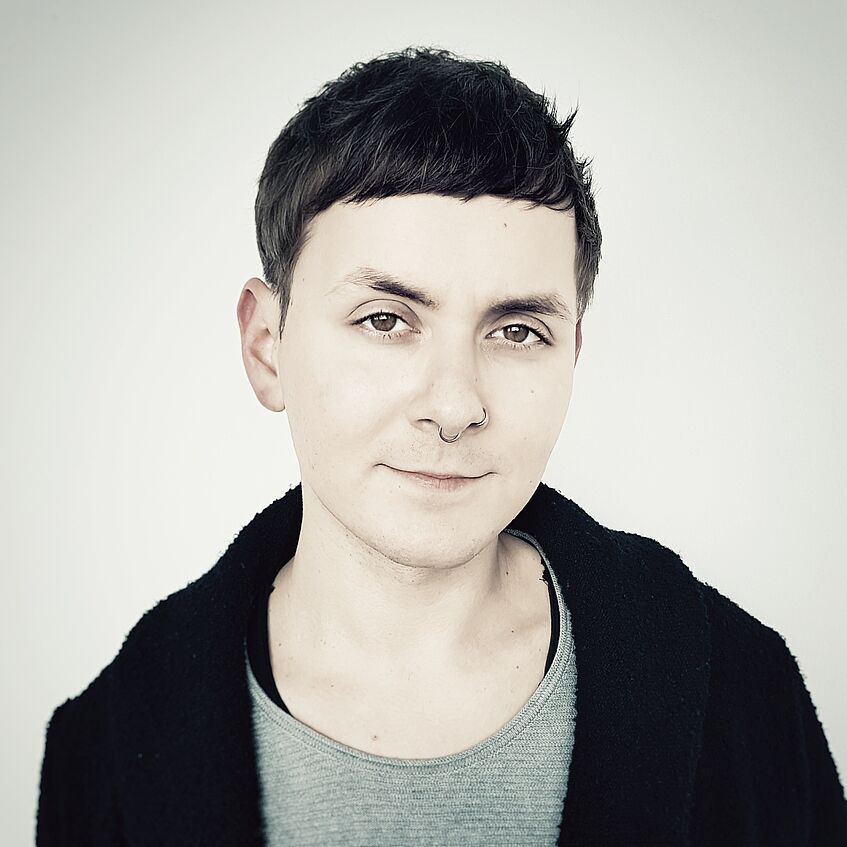
Simon Zingerle
"I was born in Austria and graduated in MultiMediaArt at the Salzburg University of Applied Sciences, with a major in auditive design. Thereafter I moved to Vienna and enrolled in the bachelor’s program of Sociology at the University of Vienna. I wrote my thesis on self-quantification and the technologically mediated production of an entrepreneurial self, which already led me to engage with questions central to Science and Technology Studies.
I first learned about the STS department through the elective courses I took during my bachelor and it was there that I got in touch with Master students, who convinced me that doing a Master’s in STS would be the best way to further my set of interests. After having received a broad education in two relatively distinct disciplines, the interdisciplinary focus of the STS program in combination with a strong topical focus on Science-Technology-Society relations was just what I was looking for.
The program enabled me to engage with a wide range of questions that deepened both my understanding, but more importantly my interest in STS, which has made studying STS in Vienna the most rewarding experience I could have wished for, both in terms of academic input and the people that I have had the privilege of getting to know.
The courses that are offered at the department of Science and Technology Studies have been fascinating and inspiring, providing me with innumerable new threads to follow up on. The themes of the courses were always timely and highly relevant to contemporary socio-technical developments. What was especially important to me is that in their concern with the topics at hand, the seminars usually where sensitive to questions of intersectionality, especially when dealing with questions of in/exclusion of social positions in techno-scientific contexts.
Furthermore, the strong focus on internationality, attracting a diverse student body and numerous international guest lecturers has been extremely valuable in providing a multiplicity of backgrounds and perspectives that are indispensable for such a multifaceted discipline. Thus, I would recommend anyone, who is looking for a program with a strong international and inclusive focus to stop looking further and apply the University of Vienna’s STS Master’s program."
